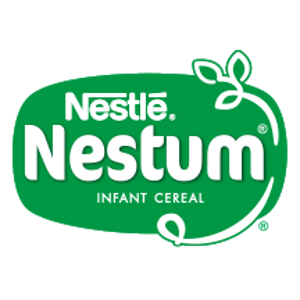
Baby allergies and intolerances: everything you need to know
If you are worried about baby allergies and intolerances, click here to learn more about what you can do and some important recommendations.
One crucial aspect of caring for your little one is understanding your baby's allergies and intolerances. As his immune and digestive systems are still developing, it's important to be vigilant about potential sensitivities that may arise during this delicate stage.
Recognizing the signs and symptoms of allergies, such as skin rashes, digestive issues, or respiratory problems, is essential for prompt intervention and ensuring your baby's well-being.
In Baby&Me, we will explore the differences between allergies and intolerances, helping you decipher the subtle nuances that may impact your baby's health.
What Are Allergies and Intolerance?
In the intricate landscape of infant health, allergies and intolerances are terms frequently used, but understanding the distinctions is crucial for effective care.
Allergies
Baby allergies are immune responses to certain proteins found in food or the environment. When an allergen is introduced, the immune system perceives it as a threat and releases chemicals like histamines, leading to various symptoms.
Common signs of allergies in babies include skin reactions like eczema, hives, or persistent rashes, as well as digestive issues, respiratory problems, or even more severe reactions in extreme cases.
Intolerance
In contrast, intolerances are generally associated with difficulties in digesting particular substances rather than an immune system response. Lactose intolerance, for example, occurs when a baby lacks the enzyme needed to break down lactose in milk.
Symptoms may include bloating, gas, and digestive discomfort.
Recognizing these nuances is vital for parents, as the approach to managing allergies and intolerances can differ.
While allergies often necessitate strict avoidance of the triggering substance, intolerances may require adjustments in the diet or the use of specially formulated products.
Foods that May Cause Baby Allergies and Intolerance
As you embark on the adventure of nourishing your little one, it's important to be aware of potential culprits that could trigger allergies or intolerances. While each baby is unique, certain foods are more commonly associated with these sensitivities.
Dairy Products
Cow's milk protein is a frequent allergen for infants. Allergic reactions may range from mild symptoms like eczema or digestive issues to more severe responses such as anaphylaxis. Lactose intolerance, on the other hand, involves difficulty digesting the sugar found in milk.
Soy Products
Soy-based formulas and foods can also provoke allergic reactions. Some babies who are allergic to cow's milk protein may also react to soy, making it important to explore alternative options carefully.
Eggs
These allergies are common in infants. The proteins in both the egg whites and yolks can be problematic. Allergic reactions may manifest as skin rashes, gastrointestinal problems, or respiratory distress.
Nuts and Peanuts
Allergies to nuts and peanuts can be severe, leading to life-threatening reactions. Even trace amounts of these allergens can trigger responses, so utmost caution is necessary.
Gluten-containing Grains
Wheat and other gluten-containing grains can be problematic for some babies, particularly those with celiac disease or gluten sensitivity. Intolerances of gluten may cause digestive issues and nutritional deficiencies.
Navigating your baby's diet requires vigilance and careful observation. Introduce new foods one at a time and watch for any signs of allergic reactions or intolerance.
Consulting with a pediatrician can be invaluable in crafting a diet plan that meets your baby's nutritional needs while minimizing the risk of allergies or intolerances.

What To Do If My Baby Has an Allergic Reaction
Discovering that your baby has had an allergic reaction can be a distressing experience, but knowing how to respond swiftly and effectively is crucial. Here are essential steps to take if your baby shows signs of an allergic reaction:
- As a parent, it's natural to feel anxious, but maintaining a calm demeanor is vital. Panicking can escalate the situation, so take a deep breath and focus on assisting your baby.
- Familiarize yourself with common allergic reaction symptoms. These may include hives, facial swelling, difficulty breathing, persistent vomiting, or sudden behavior change. Act promptly if you notice any unusual or severe symptoms.
- If you suspect your baby is having a severe allergic reaction, call emergency services immediately. Administer any prescribed epinephrine if available, following your doctor's instructions.
- If the source of the reaction is known, remove it from your baby's environment or diet immediately. This may involve discontinuing a specific food or ensuring they are not exposed to allergens in the surroundings.
- Stay vigilant and observe your baby's condition closely. If possible, document the details of the reaction, including the time it occurred, the symptoms observed, and any factors that may have triggered it. This information can be valuable for healthcare professionals.
- Regardless of the reaction's severity, consult your pediatrician as soon as possible. They can guide further steps, potential testing, and adjustments to your baby's care plan.
Prevention is key when it comes to baby allergies, but being prepared for a reaction is equally important. Stay informed, communicate with healthcare professionals, and create an action plan tailored to your baby's specific needs.
Armed with insights on common triggers and equipped with a plan for responding to allergic reactions, you are better prepared to ensure your baby's well-being. Remember, every child is unique, and understanding their individual needs is paramount.

Gain a better understanding of your child's development with the help of our stages





































